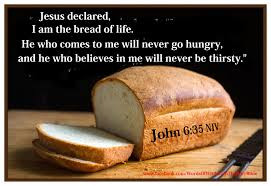
As human beings, we commit mistakes and sins, knowingly and unknowingly. Allaah (GOD) Almighty blessed us by granting us a month to purify and rectify ourselves, a means of returning back to Him.
by Sheikh Ismail Duwa
Ramadan is the 9th Islamic month wherein all Muslims are obliged to observe fasting from dawn till sunset for the entire month. The chief objective of fasting is to achieve piety and to be conscious of Allaah at all the times in one’s life and in all his affairs. To forsake all the sins and to be obedient to Allaah. To live in peace and harmony with the fellow beings and creatures of God Almighty.
Ramadan also transliterated Ramazan, Ramzan, Ramadhan, or Ramathan) is the ninth month of the Islamic calendar, and is observed by Muslims worldwide as a month of fasting to commemorate the first revelation of the Quran to Muhammad according to Islamic belief. This annual observance is regarded as one of the Five Pillars of Islam. The month lasts 29-30 days based on the visual sightings of the crescent moon, according to numerous biographical accounts compiled in the hadiths.
The word Ramadan comes from the Arabic root rami a or ar-rama, which means scorching heat or dryness. Fasting is fardh [obligatory] for adult Muslims, except those who are suffering from an illness, travelling, are elderly, pregnant, breastfeeding, diabetic or going through menstrual bleeding.
Fasting the month of Ramadan was made obligatory (wãjib) during the month of Sha’aban, in the second year after the Muslims migrated from Mecca to Medina.
Fatwas have been issued declaring that Muslims who live in regions with a natural phenomenon such as the midnight sun or polar night should follow the timetable of Mecca.
While fasting from dawn until sunset, Muslims refrain from consuming food, drinking liquids, smoking, and engaging in sexual relations. Muslims are also instructed to refrain from sinful behaviour that may negate the reward of fasting, such as false speech (insulting, backbiting, cursing, lying, etc.) and fighting. Food and drink is served daily, before dawn and after sunset.
- Chamisa under fire over US$120K donation
- Mavhunga puts DeMbare into Chibuku quarterfinals
- Pension funds bet on Cabora Bassa oilfields
- Councils defy govt fire tender directive
Keep Reading
Spiritual rewards (thawab) for fasting are also believed to be multiplied within the month of Ramadan. Fasting for Muslims during Ramadan typically includes the increased offering of salat (prayers) and recitation of the Quran.
Chapter 2, Revelation 185, of the Quran states:
The month of Ramadan is that in which was revealed the Quran; a guidance for mankind, and clear proofs of the guidance, and the criterion (of right and wrong).
And whosoever of you is present, let him fast the month, and whosoever of you is sick or on a journey, a number of other days. Allah desires for you ease; He desires not hardship for you; and that you should complete the period, and that you should magnify Allah for having guided you, and that perhaps you may be thankful. [Quran 2:185]
May Allaah Almighty grant us all the ability to do good deeds that pleases Him. Aameen.
l Sheikh Ismail Duwa is the Chairman Supreme Council of Islamic Affairs in Zimbabwe











